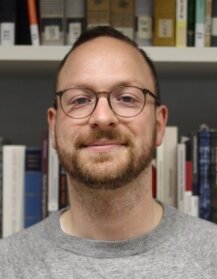
Duration: 2017-2020
Project leaders: Damien MassonExternal link (PI), Virginie LinderExternal link (Co-I), Anne HertzogExternal link (Co-I), Université Cergy-Pontoise; Sara FregoneseExternal link (Co-I), University of Birmingham; Paul SimpsonExternal link, University of Plymouth; Simon Runkel (Co-I)
Funding: Initiative d'excellence Paris//Seine
Research focus: Security and freedom
Living with terror in public space
Since the attacks of 11 September 2001 and the subsequent "war on terror", an increasing securitisation of public space can be seen in society. Today, living together in public space is accompanied by feelings of insecurity. Terrorist attacks such as those in Paris on 13 November 2015, in Brussels on 22 March 2016, in Nice on 14 July 2016, in Berlin on 19 December 2016, in Manchester on 22 May 2017 and other events lead to increased security measures and atmospheres of insecurity in the public spaces of major cities, not least due to a high level of media attention. In addition, many of these terrorist attacks were carried out with simple, almost everyday means. This feeds the impression among many citizens that an attack could occur anywhere at any time. Gatherings of many people seem to be particularly affected.
On the one hand, this leads to ever new technologies with which authorities and companies want to take optimised security precautions. This not only includes now classical forms of security such as concrete barriers or surveillance such as increased presence of law enforcement officers or video surveillance in public spaces, but also penetrates previously private areas of communication with complex 'smart solutions'. In the context of so-called smart city initiatives, security promises are increasingly being made that rely on subtle and non-visible forms of person recognition and detection of conspicuous behaviour in public space.
On the other hand, social forms of spontaneous or organised re-appropriation of public space are emerging, especially in affected cities. Atmospheric staging is used to show solidarity with victims and those affected by terrorist attacks, for example by colouring the Brandenburg Gate with the colours of the flags of the affected country, through certain hashtags or memes on the internet ("Je suis Paris") or benefit events that express collective solidarity and mourning. According to the premise of a newly launched research project, this is a certain form of urban geopolitics that is supposed to demonstrate unity and unity in the fight against terror.
Within the framework of an interdisciplinary and international research project called "Living in cities with terror: effects of diffuse terrorism on urban atmospheres", the question was asked to what extent the experience of terrorist attacks or their media processing in various European cities influences people's everyday lives. The research consortium consisted of social scientists and geographers from the universities of Cergy-Pontoise (France), Birmingham and Plymouth (both UK) and Prof. Dr. Simon Runkel (formerly still in Heidelberg). Funding for two years was provided by the Initiative d'excellence Paris//Seine.
The project aims firstly to understand how the "burden" of a potential terrorist attack affects people and their behaviour in public space. Secondly, the research project aims to contribute to an understanding of the extent to which discourses and practices of public as well as private actors influence urban residents' sense of security. A central thesis in the project was that urban environments and their atmospheric qualities shed light on the relationships between discourse, practice and feeling. The research approach aimed at the individual experiences people have in their everyday use of public space in confrontation with security measures. The concept of atmosphere was used to describe the affective and emotional experience of living together in public space. Ultimately, the aim of the research project was to contribute to the understanding of how freedom and security in public space in European metropolises are renegotiated when terrorist attacks or their staging in the media become a familiar experience despite their tragic exceptionality. Field research was conducted in British, German and French cities. The project, which was organised via start-up funding, served to prepare a project "Atmospheres of (Counter)Terror in European Cities" (ORA programme), which will be launched in 2021.
